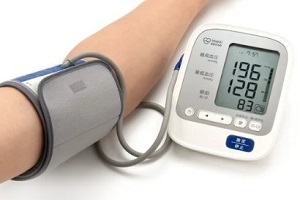 High blood pressure isn’t simply a statistic. It’s a significant health issue, particularly when it persists, evolving into chronic hypertension. Gaining insights into its causes offers a powerful tool to navigate your journey towards healthier living.
High blood pressure isn’t simply a statistic. It’s a significant health issue, particularly when it persists, evolving into chronic hypertension. Gaining insights into its causes offers a powerful tool to navigate your journey towards healthier living.
The Relationship Between Obesity and Chronic Hypertension
It’s interesting to note the close relationship between obesity and chronic hypertension. Research reveals that roughly 75% of individuals grappling with chronic hypertension are also dealing with excess weight.
Carrying excess weight means your heart must work overtime to circulate blood. This constant pressure can ultimately lead to chronic hypertension. Moreover, obesity often accompanies other conditions such as sleep apnea and metabolic syndrome, further escalating the risk of enduring high blood pressure.
Diabetes’ Role in Chronic Hypertension
You might find it surprising that diabetes and high blood pressure frequently appear together in medical records. Diabetes is notorious for disrupting more than just your blood sugar levels. It also has a penchant for unsettling blood pressure control, raising the risk for high blood pressure among diabetic patients.
Diabetes is characterized by either inadequate insulin production or resistance to it, resulting in elevated blood sugar levels. Yet insulin’s role extends beyond regulating sugar and contributes to blood pressure control. Insulin resistance can hinder blood vessels from relaxing and dilating, leading to chronic high blood pressure.
Understanding the Link Between Pregnancy and Chronic Hypertension
Pregnancy can sometimes lead to increased blood pressure. It’s essential to differentiate between chronic hypertension and pregnancy-induced hypertension. Chronic hypertension refers to high blood pressure that existed before pregnancy or was identified within the first 20 weeks of gestation.
Several factors can elevate the risk of high blood pressure during pregnancy, such as excess weight, a family history of hypertension, and maternal age, particularly when over 40. Recognizing these risk factors allows for timely intervention and safer pregnancy outcomes.
The Effects of Chronic Kidney Disease on Hypertension
 If you suffer from chronic kidney disease (CKD), you must monitor your blood pressure constantly. CKD and chronic hypertension share a troubling reciprocal relationship—CKD frequently results in high blood pressure, while unchecked hypertension can hasten kidney damage.
If you suffer from chronic kidney disease (CKD), you must monitor your blood pressure constantly. CKD and chronic hypertension share a troubling reciprocal relationship—CKD frequently results in high blood pressure, while unchecked hypertension can hasten kidney damage.
In CKD, the kidneys struggle to filter blood effectively, leading to toxin accumulation over time. This buildup triggers a series of reactions that elevate blood pressure. Further, impaired kidneys fail to balance fluid and salt adequately, intensifying high blood pressure symptoms.
The Genetic Angle
Your genetic makeup also contributes to your blood pressure regulation. Researchers have identified numerous genes influencing blood pressure. Some individuals inherit genes that predispose them to chronic hypertension.
Monogenic hypertension, resulting from alterations in a single gene, is rare but can cause severe hypertension. Conversely, most individuals with chronic hypertension experience polygenic hypertension, where minor changes across multiple genes lead to slightly elevated blood pressure.
Sedentary Lifestyles and Blood Pressure
Though it might not be immediately apparent, prolonged sitting can significantly impact your blood pressure. Physical inactivity strains your heart to pump blood, increasing blood pressure over time.
Studies have drawn a link between extended periods of sitting and a heightened risk of chronic hypertension. Even regular exercise can’t fully counteract the effects of spending large portions of your day sitting.
How Stress Affects Blood Pressure
Stress is a normal function of the human body designed to protect you. It’s when stress becomes chronic that issues arise because your body releases hormones that temporarily increase blood pressure to prepare you to respond to such situations. If stress is a constant, these temporary spikes can progress into chronic hypertension.
Chronic stress isn’t merely detrimental to your mental well-being—it poses a substantial risk factor for hypertension as well. Constant stress keeps your body’s stress response in overdrive, which, over time, can damage your blood vessels, leading to chronic hypertension.
The Link With Sleep Apnea
 Sleep apnea is when you repeatedly stop breathing while asleep, and its impact on blood pressure regulation is often overlooked. These breathing pauses can decrease oxygen levels in your blood, leading to the release of stress hormones. Consequently, your heart rate spikes and your blood vessels tighten, both of which are conducive to high blood pressure.
Sleep apnea is when you repeatedly stop breathing while asleep, and its impact on blood pressure regulation is often overlooked. These breathing pauses can decrease oxygen levels in your blood, leading to the release of stress hormones. Consequently, your heart rate spikes and your blood vessels tighten, both of which are conducive to high blood pressure.
With time, these recurrent episodes can morph into chronic hypertension. Therefore, if you’re dealing with symptoms such as pronounced snoring or persistent daytime tiredness, exploring the possibility of sleep apnea with your healthcare provider may be beneficial.
The Vital Role of Managing Chronic Hypertension
Chronic hypertension is not just a persistent health issue, it’s a challenge that demands understanding, active management, and a proactive mindset. Knowing the various factors contributing to this condition empowers you to take firm control of your health journey.
Remember, every effort towards managing chronic hypertension signifies a step towards a healthier life. Our dedicated specialists are ready to guide you. Contact us today at 919-873-4437 or online, and we work together to craft a personalized plan to manage your condition effectively.
